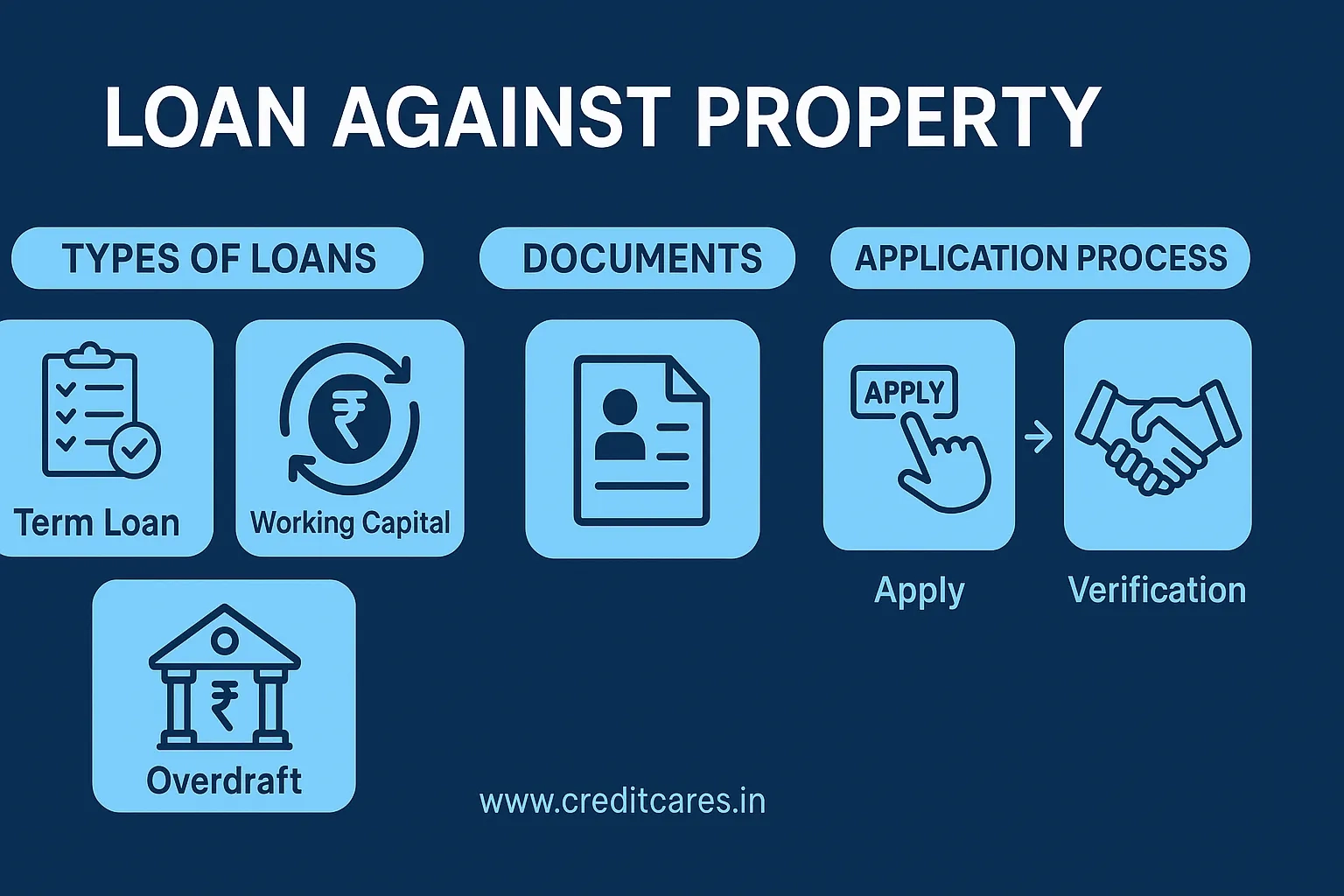Introduction
Loan Against Property (LAP) is one of the most flexible and affordable loan options for individuals and businesses alike. Whether you’re expanding your business, paying for education, or consolidating debt, LAP offers a way to unlock the value of your real estate. Yet, many borrowers remain confused about the details. To help you make informed decisions, here are the top 5 frequently asked questions about LAP, answered clearly and accurately.
1. What is a Loan Against Property (LAP)?
A Loan Against Property is a secured loan where you pledge your residential, commercial, or industrial property as collateral to get a loan from a bank or NBFC.
-
It differs from personal loans by offering lower interest rates, longer tenures, and higher loan amounts.
-
You retain ownership and usage of the property even while it is mortgaged.
According to the Reserve Bank of India (RBI), LAP falls under the category of secured credit and is subject to regulatory norms on asset classification and LTV ratios.
For more, refer to HDFC’s LAP product page to see eligibility, documentation, and features in detail.
2. Who is Eligible to Apply for LAP?
Eligibility depends on income, property value, credit history, and documentation. Generally, the following groups are eligible:
-
Salaried professionals
-
Self-employed individuals
-
Businesses (proprietors, partnerships, companies)
Most banks look for stable income and a clear title to the property. For example, ICICI Bank requires income proof and KYC documents for salaried and self-employed applicants.
Also, ensure your property complies with local municipal norms, as noted in this Investopedia article on property-backed loans.
3. How Much Can I Borrow on LAP?
Loan amounts typically range from 40% to 75% of the market value of the property. This percentage is known as the Loan-to-Value (LTV) ratio.
-
For residential properties: usually 60%–70%
-
For commercial properties: usually 50%–60%
According to SBI’s LAP lending policy, applicants can borrow up to ₹7.5 crore depending on their income and collateral.
Refer to CIBIL’s guide for how your credit score may influence the loan amount and interest rate.
4. What Documents Are Required?
Documentation varies by lender, but typically includes:
-
KYC documents: Aadhaar, PAN, Passport
-
Income proof: Salary slips, ITR, bank statements
-
Property documents: Title deed, chain of ownership, recent property tax receipt
-
Business proof (for self-employed): GST certificate, business registration
You can explore Bajaj Finserv’s LAP document checklist for detailed requirements across different applicant types.
Additionally, RBI guidelines on KYC are applicable to all such loan applications.
5. How is LAP Different from a Home Loan or Personal Loan?
| Feature | LAP | Home Loan | Personal Loan |
|---|---|---|---|
| Collateral | Yes (Property) | Yes (Property to be purchased) | No |
| Interest Rate | Moderate | Low | High |
| Loan Tenure | Up to 15–20 years | Up to 30 years | 1–5 years |
| Loan Amount | Based on property value | Based on property purchase | Based on income |
A good comparison guide is provided by BankBazaar, showing interest and tenure differences between LAP and other loan types.
You can also explore Navi’s article which outlines the pros and cons in an Indian context.
Bonus: Quick Tips to Maximise LAP Approval
-
Maintain a CIBIL score above 700 for better chances.
-
Choose a registered and litigation-free property.
-
Keep your financials and ITR filings up to date.
-
Compare interest rates and processing fees from multiple banks.
Check your CIBIL score directly at TransUnion CIBIL before applying.
FAQs
1. Is LAP available for leasehold property?
Yes, but lenders usually demand a long-term lease (typically 30+ years) and No Objection Certificate (NOC). Check specific conditions from LIC Housing Finance.
2. Can NRIs apply for LAP?
Some banks like HDFC offer LAP for NRIs, subject to specific terms including local income and Power of Attorney.
3. What is the average interest rate for LAP?
Ranges between 9% and 14% annually, depending on credit score and lender. Compare rates at Moneycontrol’s loan section.
4. Can I prepay or foreclose a LAP early?
Yes. Most banks allow part-payment or full pre-closure. However, NBFCs may charge fees. RBI guidelines support no prepayment penalty for individual borrowers on floating rates.
5. Does LAP affect my CIBIL score?
Yes, repayment behavior impacts your credit profile. Regular EMIs boost score, while defaults lower it. Read more at CIBIL’s official help page.
Final Thoughts & Call to Action
A Loan Against Property is a versatile financial tool—but only if you fully understand its terms and responsibilities. With the right knowledge, you can access large sums at relatively low costs while retaining ownership of your property.
📞 Need help choosing the right LAP option for your business or personal needs?
Contact us today or Check your eligibility instantly.





